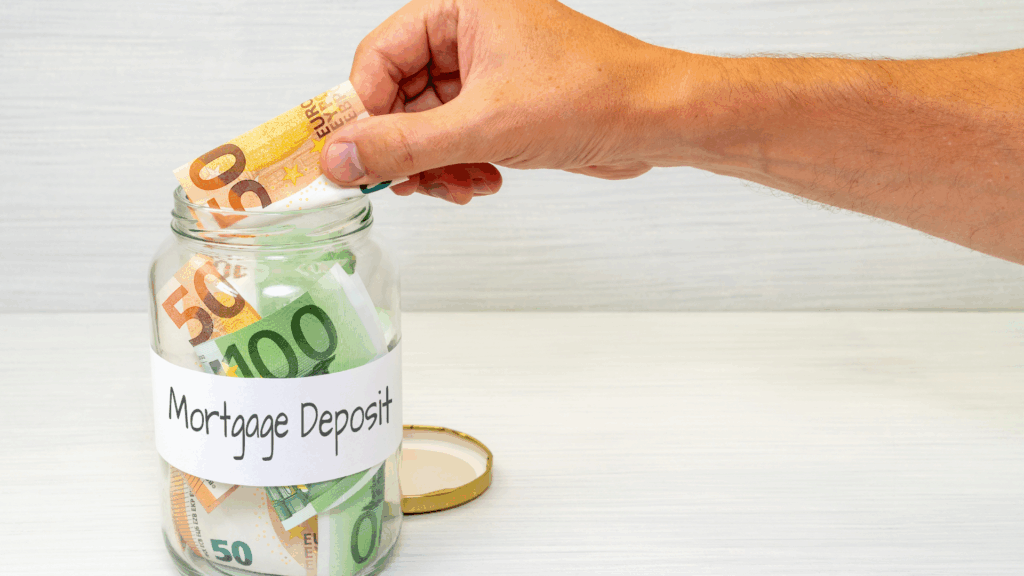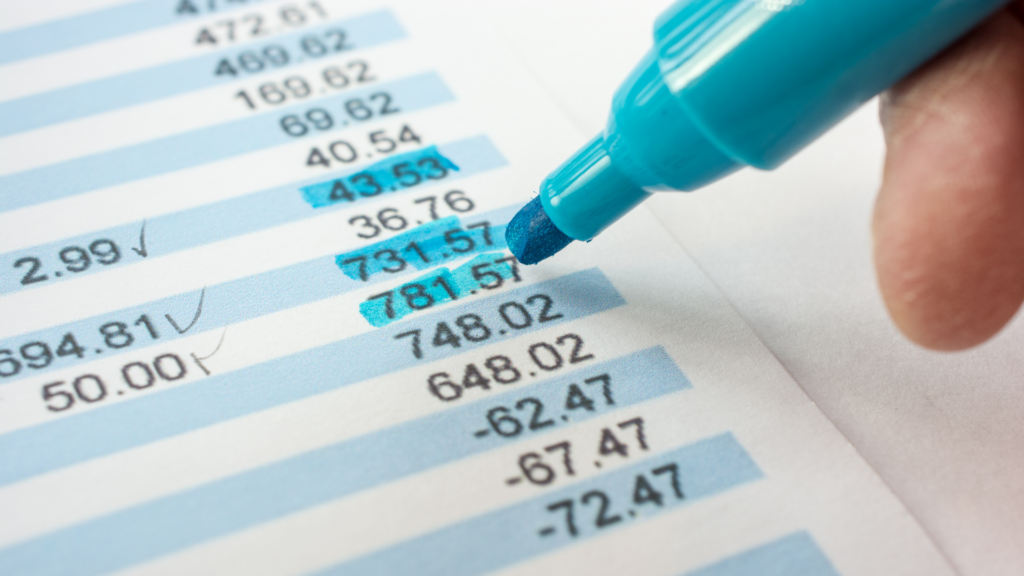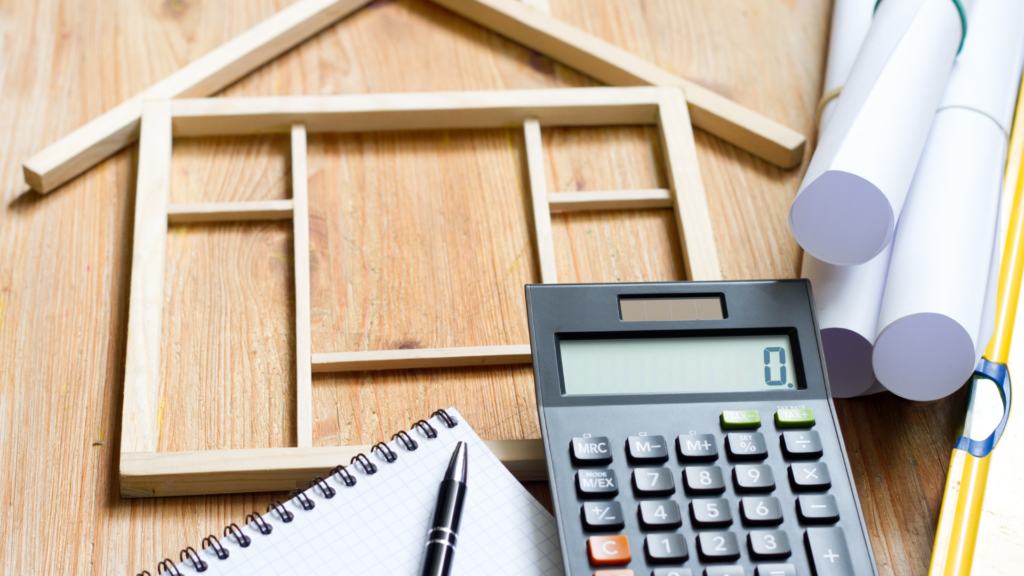- How Much Deposit Do You Need with Bad Credit?
- How Much Deposit Do You Need with Different Credit Issues?
- What Sources Are Acceptable for Your Mortgage Deposit?
- Can I Get A Bad Credit Mortgage With A Small Deposit?
- What Are My Options With Low or No Deposit?
- What Mortgage Rates Can You Expect with Bad Credit?
- How To Get Out of a Bad Credit Rut?
- Key Takeaways
- The Bottom Line
What Deposit Do You Need with Bad Credit?
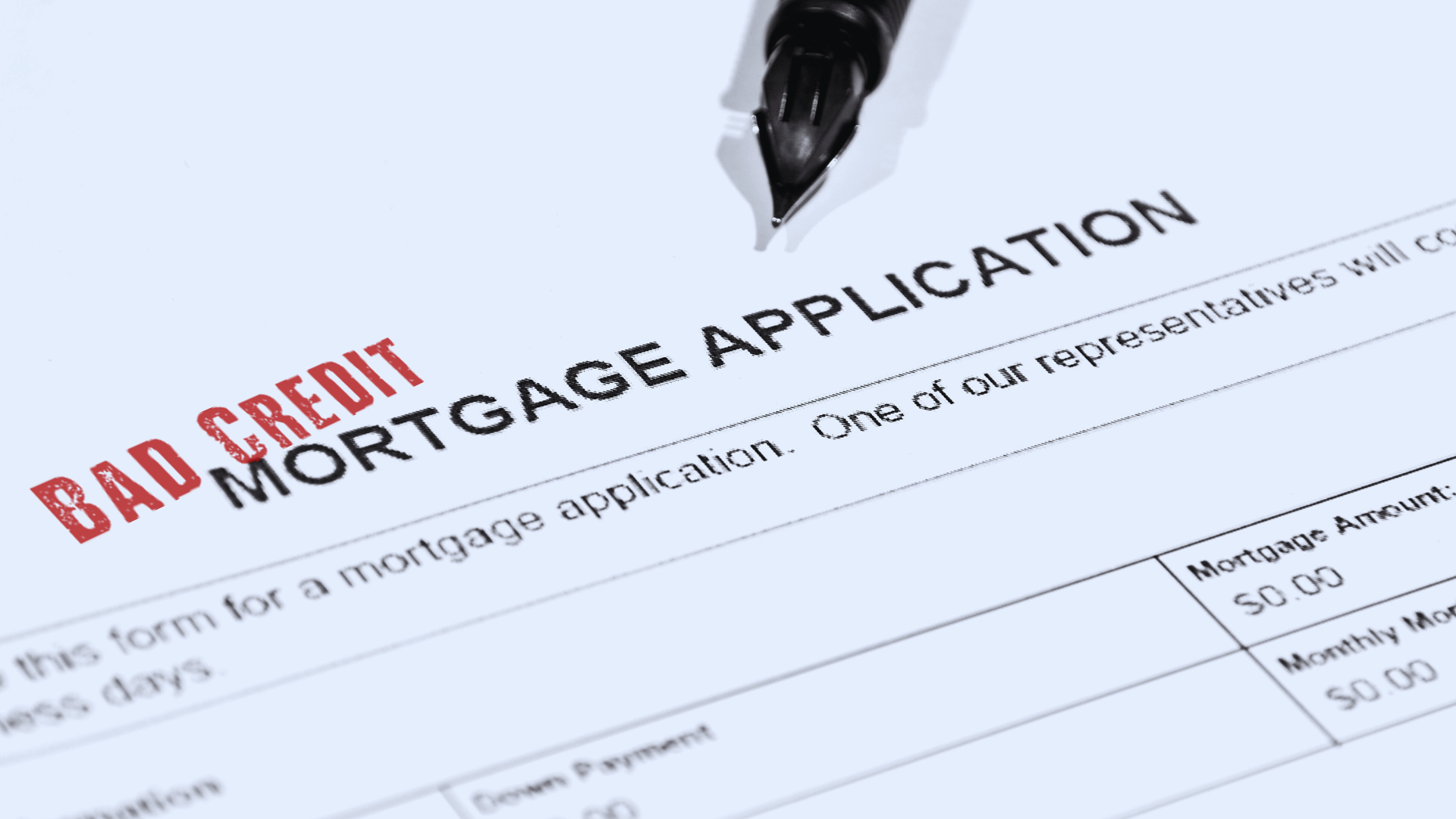
The deposit you need often depends on your credit history. A cleaner record could mean you need a smaller deposit.
If your credit history has some bumps, lenders might ask for a larger deposit to feel secure in offering you a loan.
In this guide, we’ll cover everything you need to know about deposit requirements for bad credit mortgages.
How Much Deposit Do You Need with Bad Credit?
Usually, the worse your credit history, the higher the deposit you’ll need to secure a mortgage.
While someone with excellent credit might get away with a deposit as small as 5%, you might need to think about 15% or even more if your credit history isn’t as good.
The size of the deposit required can also change based on what specific issues are in your credit history.
Minor issues like a late payment here and there might not bump up the deposit by much.
More severe issues, like a past bankruptcy, could mean you need to bring a much larger deposit to the table.
If you fixed your credit issues long ago and have managed your money well lenders might ask for a smaller deposit.
A better credit score over time can lower the deposit you need. This shows lenders you are now reliable with money.
How Much Deposit Do You Need with Different Credit Issues?
Knowing how your credit history affects your mortgage deposit is vital when applying.
Lenders look beyond past credit problems – they also consider your income stability, job type, and the value of the property you want. All this helps them assess the risk and how much deposit they’ll require.
Here’s a guide to help you understand the typical deposit required based on different credit issues:
| Credit Issue | Level of Severity | Application Wait Time | Typical Deposit Required |
|---|---|---|---|
| No credit history | Not severe | No specific wait | 5-10% |
| Low credit ratings | Not severe | No specific wait | 5-15% |
| Overdraft Usage | Not severe | No specific wait | 10-15% |
| Late payments | Not severe | 6 months – 1 year | 10-15% |
| Mortgage arrears | Moderate | 1-2 years | 15-20% |
| Defaults | Moderate | 1-3 years | 15-25% |
| County Court Judgement (CCJ) | High | 2-3 years | 20-30% |
| Debt Management Plan (DMP) | High | 1 year after completion | 15-25% |
| Individual Voluntary Arrangement (IVA) | High | 1-2 years after completion | 20-30% |
| Bankruptcy | Very High | 3-4 years | 25-40% |
| Repossession | Very High | 3-4 years | 25-40% |
| Multiple Issues (Combination of any of the above) | Very High | 3-5 years | 25-40% |
Note: While the “Application Wait Time” suggests waiting after fixing credit issues, it’s not a rule. Specialist lenders may offer mortgages sooner as long as you meet their criteria.
What Sources Are Acceptable for Your Mortgage Deposit?
Most lenders prefer that your deposit comes from savings because it shows you’re good at managing your money. However, there are many other sources you can use, including:
- Money gifted by your family
- Proceeds from the sale of another property or asset
- Inheritance from a family member
- Bonuses from your job
- Money from a personal loan, if the lender agrees
- Equity released from another property
There must be a paper trail for your deposit. This helps prove where your money came from. Some sources might be less typical, like:
Using these less common sources might mean you need a specialist lender. Also, while you can sometimes use a personal loan for your deposit, this is often tricky.
Most lenders are cautious about accepting borrowed money as a deposit because it can be risky.
If you have bad credit, getting professional advice can really help you find a lender willing to accept your deposit source. This helps make sure you don’t run into issues when you apply for your mortgage.

Can I Get A Bad Credit Mortgage With A Small Deposit?
It might be possible to get a bad credit mortgage with a small deposit, but it’s not guaranteed and can be more challenging.
Lenders often feel uneasy when the deposit is small because it means you’re borrowing a larger percentage of the property’s value.
This increases their risk, especially if you’ve had credit problems in the past, as it shows you’ve faced financial difficulties before.
Even with help from a specialist broker, finding a lender willing to accept a small deposit can be tricky. This depends on several things, like the lender’s criteria, your financial situation, and the options available in the market at the time.
Still, having a steady income and working with an expert can make it easier to explore your options and find a solution that might work for you.
What Are My Options With Low or No Deposit?
If you’re dealing with bad credit and have a low or no deposit for getting a mortgage, don’t worry. There are several paths you can take to improve your situation.
First, consider working on your credit score. The better your score, the more options you will have.
The best way to discover all your options is by speaking with experienced mortgage brokers.
They can guide you through the mortgage products available for your financial situation and explain what you might qualify for based on your credit history and deposit size.
But to get you started, here’s an overview of your options when you have bad credit and little to no deposit:
- Guarantor Mortgages. A family member or friend can guarantee your mortgage, promising to cover payments if you can’t. This lowers the risk for lenders, which might allow you to borrow more, even with a small deposit.
- Government Schemes. Explore options like Mortgage Guarantee Scheme, First Homes, or Shared Ownership. These schemes can help you buy a home with a smaller deposit and are often accessible even if your credit isn’t perfect.
- Offset Mortgages. A family member might put up their savings as security instead of a deposit. This can help you secure a mortgage without needing a traditional deposit.
- Joint Buyer, Sole Proprietor Mortgages. This arrangement lets you buy with a family member while you retain sole ownership of the property. It’s a good option if you can’t afford the mortgage on your own.
- Lifetime ISA. This is a government-backed savings scheme where you can save up to £4000 a year, and the government will add 25% on top of what you save. It’s a great way to boost your deposit.
- Right to Buy. If you’re a council tenant, you might be able to buy your home at a discounted price. This scheme requires a lower deposit and can make buying more achievable.
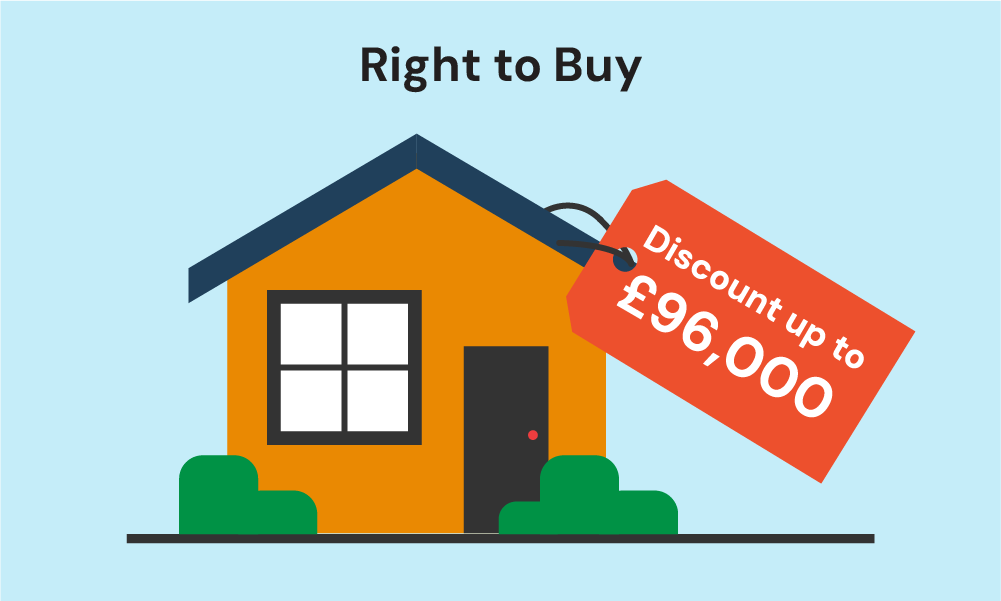
What Mortgage Rates Can You Expect with Bad Credit?
A bad credit history makes you a riskier borrower in the eyes of mortgage lenders, so they typically charge higher interest rates.
To get the best rates possible, improve your credit score by tackling any outstanding debts and staying on top of your current payments.
It’s also smart to shop around for different mortgage deals. Some specialist lenders offer rates designed for people with poor credit, which could save you money over the long run.
How To Get Out of a Bad Credit Rut?
You probably know you have bad credit. It might make you feel stressed or embarrassed.
You might also worry about how it will affect your chances to borrow money or find a good place to live.
High-interest rates and the fear of being turned down for loans can be worrying. It can all feel overwhelming when you think about the future.
Don’t worry, here’s how you can turn things around:
- Check Your Credit Report. Start by getting a copy of your credit report from a credit reference agency– Experian, Equifax, and TransUnion. Look for any mistakes because they can hurt your score. If you spot errors, tell the credit agency to fix them.
- Pay Bills on Time. It sounds simple, but paying your bills when they’re due can really help boost your credit score. Missing payments can damage your score, so try setting up reminders or direct debits to keep on track.
- Cut Down Your Debt. Try to pay off what you owe, especially debts with high interest like credit cards. You might like the snowball method, where you pay small debts first to get going, or the avalanche method, where you start with the debts with the highest interest.
- Keep Your Credit Use Low. Aim to use less than 30% of your credit limit across all your accounts. Using a lot of your available credit can make it look like you rely too much on credit, and this can drop your score.
- Be Careful with New Credit Applications. Every time you apply for credit, it can slightly lower your credit score. So, only apply for new credit if you really need to.
- Build a Good Credit History. If you don’t have much credit history or if your credit is poor, think about using a secured credit card or a credit builder loan. These can help you show that you are reliable without too much risk for the lender.
- Get Advice from Experts. If you find it hard to manage your debts, it might be a good idea to talk to a financial advisor or a credit counselling service. They can give you tailored advice and might suggest things like debt consolidation or management plans that could help.
Key Takeaways
- If you have bad credit, you’ll usually need a bigger deposit for a mortgage—ranging from 15% to 40% depending on the severity of your credit issues.
- Lenders will want proof of where your deposit comes from, whether it’s savings, a gift, or the sale of an asset, and they’ll be cautious about deposits from loans or unusual sources like cryptocurrency.
- Bad credit mortgages are possible with a smaller deposit, but they’re harder to get, and lenders might charge higher interest rates or require a guarantor.
- If you have little or no deposit, options include guarantor mortgages, government schemes like Shared Ownership, or help from family savings through offset mortgages.
The Bottom Line
Buying a home with bad credit might seem tough, but don’t worry—there are options for you.
Some lenders understand that bad credit doesn’t always mean high risk and offer special loans tailored for such situations.
To improve your chances, focus on boosting your credit score. Pay your bills on time, reduce your debts, and regularly check your credit report for accuracy. These actions can help you secure better mortgage options in the future.
For the best deals, consider consulting with a mortgage broker. They find suitable mortgages even with bad credit and guide you to lenders with flexible credit requirements.
A broker negotiates with lenders on your behalf, explaining your finances to focus on your strengths, not just your credit score.
Looking for a broker? Get in touch with us. We’ll connect you with a skilled mortgage broker who specialises in bad credit mortgages.
Get Matched With Your Dream Mortgage Advisor...

Frequently asked questions
Do I need to have at least a 50% deposit to secure a mortgage if I have bad credit?
No, you don’t need a 50% deposit to secure a mortgage even if you have bad credit. While a larger deposit can improve your chances and possibly lower the interest rates offered, some lenders may accept smaller deposits.
It’s worth exploring various mortgage products and discussing your options with a mortgage broker who can guide you based on your specific circumstances.
How much deposit do I need for a buy-to-let mortgage with bad credit?
For a buy-to-let mortgage, lenders typically require a larger deposit, especially if you have bad credit.
Generally, you might need between 25% to 40% as a deposit, depending on how severe your credit issues are and the lender’s criteria.
How much deposit do I need for a second home if I have bad credit?
If you’re looking to buy a second home and have bad credit, you’ll likely need a substantial deposit.
Typically, this could be anywhere from 25% to 35% of the property’s price, reflecting the increased risk the lender is taking.
Can I apply with a partner if I have bad credit?
Yes, you can apply for a mortgage with a partner even if you have bad credit.
Applying with a partner who has a good credit score might improve your chances of approval and potentially reduce the amount of deposit required.
But, both of your financial histories will be considered in the application process

